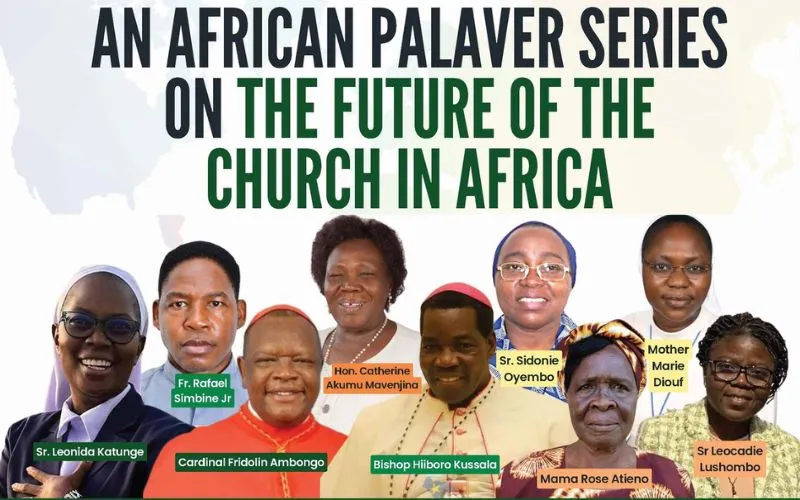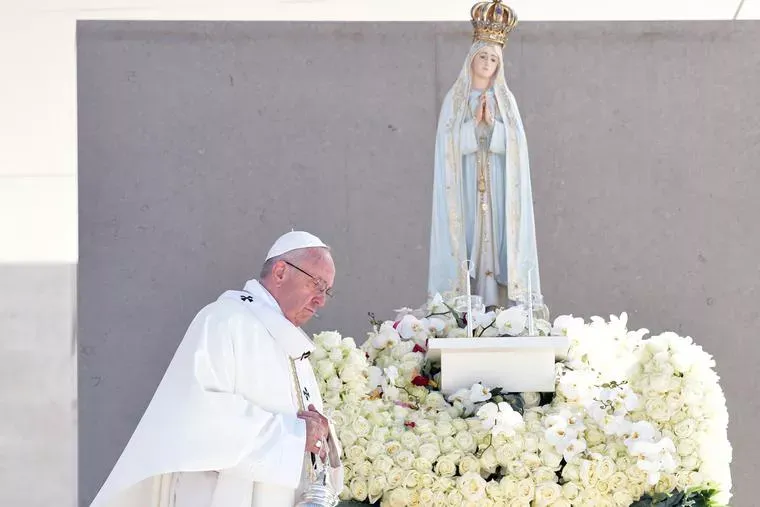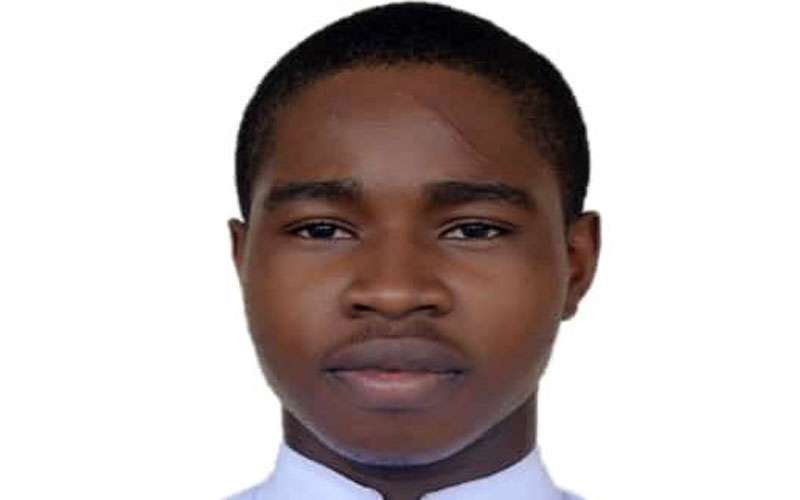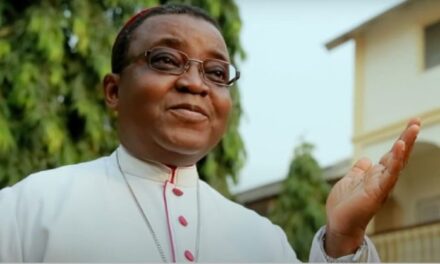Information reaching the Directorate of RECOWACERAO NEWS AGENCY, RECONA indicated that the Catholic Church in Africa has been recently urged to Tap into Diaspora Communities to Grow the African Continent. This information was gathered from the Webinar where CERAO-RECOWA participated actively while gearing up to organize Her’s. Details of the Webinar report have it that Catholic Bishops and religious communities in Africa have been urged to harness the potential of the diasporic communities in growing the continent.
Speaking during this heavily attended online conversation that was organized by African theologians who seek to deepen the understanding of the Synthesis Report of the ongoing Synod on Synodality, Fr. Paulinus Odozor from Nigeria who teaches moral theology at the University of Notre Dame said Africa can benefit immensely from diaspora communities that he said already seem to be well organized.
Participants at the June 7 conversation that was organized by the Pan-African Catholic Theology and Pastoral Network (PACTPAN) explored the topic “Listening to the Voices of the Poor and God’s People in Africa”.
While a section of theologians at the event agreed that the notion ‘Africa is poor’ is a “misconception” and “a misrepresentation of the continent”, Fr. Odozor illustrated the poverty in Africa, and suggested ways to get the continent out of the “quagmire”.
“In all discussions about Synodality, I have not heard anybody talk about the one unique resource Africa has over all the other continents. The diasporic Catholic communities spread across the globe,” Fr. Odozor said at the event that PACTPAN organized in collaboration with the Conference of Major Superiors of Africa and Madagascar (COMSAM).
He added, “As we talk about structures of governance and how to bring Africa out of this quagmire we find ourselves in, I hope there is a way we can incorporate the latent energy of the African diaspora from all parts of the continent.”
According to the Nigerian Theologian, the African Church does not only belong to Africans at home, and therefore requires the participation of the diaspora in its growth.
“How can SECAM (the Symposium of the Episcopal Conferences of Africa and Madagascar), the various Episcopal conferences, the various religious communities come together and dialogue with these groups and see how they can harness the tremendous resources that these people have all over,” he said.
Fr. Odozor said the diasporic Catholic community has immense resources materially, spiritually, theologically, and economically to grow communities back at home.
The priest spoke at the first in a series of conversations that PACTPAN and COMSAM have organized to run up to September 6, ahead of the October Synod session in Rome.
Speaking to the media ahead of June 7 engagement, Fr. Stan Chu Ilo, PACTPAN’s Coordinating Servant recalled that Bishops in Africa had, during a meeting of Africa’s Delegates to the Synod in Kenya “urged African theologians and pastors to continue the discussions began at the seminar.”
At the delegates meeting in Nairobi, the President of the Symposium of the Episcopal Conferences of Africa and Madagascar (SECAM), Fridolin Cardinal Ambongo also urged the theologians of Africa to work in close partnership with the bishops in deepening an understanding of “the issues at hand” and focusing the attention of the people on the priorities of the Church in Africa “in these challenging times.”
More than 250 theologians, priests, and religious, as well as laity, took part in the June 7 conversation that took the form of a palaver that was enriched by African proverbs. Speakers responded to questions after a prayer that was led by SECAM President, Cardinal Ambongo.
In his welcoming address, Fr. Stan alluded to the saying, “As long as lions don’t have their historian, tales of the hunt will always glorify the hunter” and encouraged participants in the conversation to be vocal about the realities of Africa.
“For us here and now, this means that as long as Africa does not speak for itself about its own realities, it will always be distorted by others,” Fr. Stan said, making reference to the saying. He posed, “What comes to your mind when people say that Africa is ‘a poor country’ and that the Church in Africa is poor? Is this true?”
Sr. Sidonie Oyembo, a Gabonese theologian and consultor for the Dicastery of the Institute for Consecrated Life and Societies of Apostolic Life described the idea that Africa is poor as a “misinterpretation”.
“I’d say it’s like a stereotype of lack that’s been imposed on Africa and that many Africans have integrated as a reality. But it’s not true,” the Catholic Nun who also serves as COSMAM’s Director of the Commission on Formation said. She said that the richness of Africa can be seen in the continent’s faith.
“Africa is not poor. It has the greatest of riches. First and foremost, is its faith. And one of its greatest riches is human strength. Even the strength of so many young people with their creative genius and so much wisdom,” she explained.
“To change this image, it seems to me that we need to start again from the Trinity’s original project,” she said, and added, “God created us to be happy, and he has given Africa and all these peoples what they need. So, we need to continue transforming the multifaceted wealth that God has given us through our own genius, and our work. We also need to practice moving from the idea of an Africa starved by lack to that of an Africa overflowing with wealth to be transformed and shared.”
Fr. Vitalis Anaehobi, the Secretary General of the Regional Episcopal Conference of West Africa (RECOWA) said Africa could be impoverished but that it is not poor.
“Africa is impoverished economically. Impoverished by Africans themselves, impoverished by the Western alliances, impoverished by the world economic system. But Africa is not poor,” Fr. Anaehobi said.
The member of the Clergy of Nigeria’s Catholic Diocese of Nnewi, who was among the delegates of the October 2023 Synod on Synodality sessions in Rome said, “Africa is rich because Africa is blessed.”
He said that Africa’s poverty is only in governance. “I’m from Nigeria, a very rich nation. Rich in intellectually, rich in natural resources, rich in human resources. But Nigeria is a poor country, poor because it has been impoverished by the few elites.”
“Africa is rich and will be rich the day we wake up to say enough is enough,” the Nigerian priest said.
Fr. Odozor differed from the other speakers and went ahead to give indicators of poverty in Africa.
He said, “I vehemently disagree with all these assertions about Africa not being poor because it doesn’t speak to the reality and it therefore robs us of the chance to address the issues.”
“A continent that cannot pay its bills is poor. A continent that cannot train its youth is poor. A continent that allows its youths to go away, dying on the high seas, looking for jobs is poor. In all these economic indices, Africa is poor. And we must accept this and must therefore find solutions to it,” he said.
In her presentation on the June 7 topic “Listening to the Voices of the Poor and God’s People in Africa”, Sr. Sidonie underlined the need to create spaces for discussion and exchange with the poor.
These spaces, she said, would help the Church to get a better idea of who the poor are, and why they consider themselves poor. Sr. Sidonie said that in these spaces, the Church would get answers to the questions such as: Who the poor really are, and what they expect from the Church
- SYNODALITY FOR THE AFRICAN IS A REJECTION OF INDIVIDUALISM. - October 23, 2024
- THE ENCYCLICAL, TITLED DILEXIT NOS TO APPEAR SOON - October 22, 2024
- MESSAGE OF HIS HOLINESS POPE FRANCIS FOR WORLD MISSION DAY 2024 20 OCTOBER, 2024. - October 21, 2024






